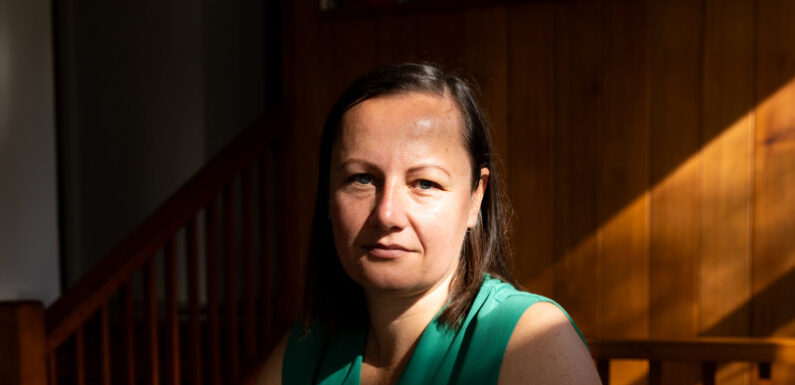
Save articles for later
Add articles to your saved list and come back to them any time.
A technology founder who sent “dick pics” to a colleague’s wife. A senior investor’s advances towards a junior colleague. A much-hyped start-up that settled a harassment complaint, and then failed to follow through on promises of sexual harassment training.
Lucy Wark and Misha Garg are two of a growing number of women speaking out against instances of workplace harassment and discrimination among Australian technology companies and their investors, in what’s becoming a “me too” moment for the local sector.
Misha Garg and Lucy Wark have set up a platform, Grapevine, for people in tech to share their experiences of sexual assault and sexual harassment.Credit: Janie Barrett
A movement that began just a few weeks ago as an informal WhatsApp group chat of women speaking up against sexual harassment, Grapevine launched this week as a fully fledged initiative for women and men in the start-up sector to anonymously share their stories in the hope it will help stamp out the bad behaviour.
The Grapevine website, which will share de-identified stories as well as advice on how to navigate instances of harassment, is the result of work from Lucy Wark, start-up founder Misha Garg and women in the sector including Kirstin Hunter, Emma Earley, Sam Garven, Paloma Newton, Jessy Wu and Margot Kilgour.
“These conversations have been happening in silos, person-to-person and in private conversations, for a long time,” Wark said.
Wark is the co-founder of sexual wellness brand Normal and skills platform Fuzzy, and said that as a founder of a sexual wellness start-up, she is often on the receiving end of inappropriate LinkedIn messages and sexualised comments from investors.
“I think now is an inflection point, and a maturing point, for the Australian start-up sector. We want everyone to be able to come to work safely, and to actually eliminate this behaviour. I think that’s a goal worth shooting for,” Wark said.
A code of conduct was created for the start-up sector in 2018 by venture capital firms including Square Peg, Blackbird and Airtree, but there’s been no monitoring around it and many companies aren’t aware of its existence, according to Wark. Grapevine’s founding was spurred by a start-up CEO who harassed female investors and founders, before later resigning from his company.
Kirstin Hunter – managing director at Techstars – is one of Grapevine’s founding ‘vinemakers’.Credit: Edwina Pickles
While start-up valuations over the past decade have skyrocketed and hundreds of millions of investor dollars poured into the sector, Wark said that structures around corporate governance and HR had not kept up. She said issues around harassment span from tech founders themselves to investors, mentors and employees, and affect both women and men.
“In the start-up ecosystem we give millions of dollars of LPs’ [limited partners] and super funds’ money to founders, and I think we should see that as a higher level of performance, responsibility and governance required,” she said.
Corporate Australia is reckoning more broadly with how to deal with instances of sexual harassment. This month, new positive duty legislation came into effect, which requires Australian companies to take “reasonable and proportionate measures to eliminate sexual harassment, sex-based harassment, sex discrimination, hostile workplace environments and victimisation.” A recent survey from the Australian Institute of Company Directors found most directors feel their boards are underprepared for the change.
Garg said the Australian start-up sector’s rapid growth over the past decade had led to structural vulnerabilities, making it particularly susceptible to issues of bullying and harassment.
“I’ve worked for companies that range in maturity from seed stage to bigger scale-ups. Often there hasn’t been the formal training or lived experience for people to manage teams effectively or safely,” she said. “And the people and culture function tends to come in later, so it may be a bit immature as well, and if people have reported feeling unsafe, there’s not always processes and procedures in place with how to deal with it appropriately.”
She added that she wanted Grapevine to be the first step in creating a broader community to share stories, but also get practical advice on how to handle difficult workplace situations and conversations.
“At its core, Grapevine is a platform that shares de-identified stories because there’s real power in raising awareness of the kind of situations that a lot of people either face themselves or are bystanders to. We also provide practical advice for the stakeholders on how the situation could have been handled better, or prevented altogether,” Garg said.
“Sunlight is the best disinfectant. And we think there’s also a lot of power in presenting stories as they are, not embellishing them. We also ensure stories are de-identified to protect the individuals and organisations involved. We don’t want this to be about naming and shaming or scare tactics.
“We really believe that systematic change can’t happen through individual acts of courage. We all need to sort of galvanise around this and raise our voices collectively.”
The Business Briefing newsletter delivers major stories, exclusive coverage and expert opinion. Sign up to get it every weekday morning.
Most Viewed in Technology
From our partners
Source: Read Full Article

